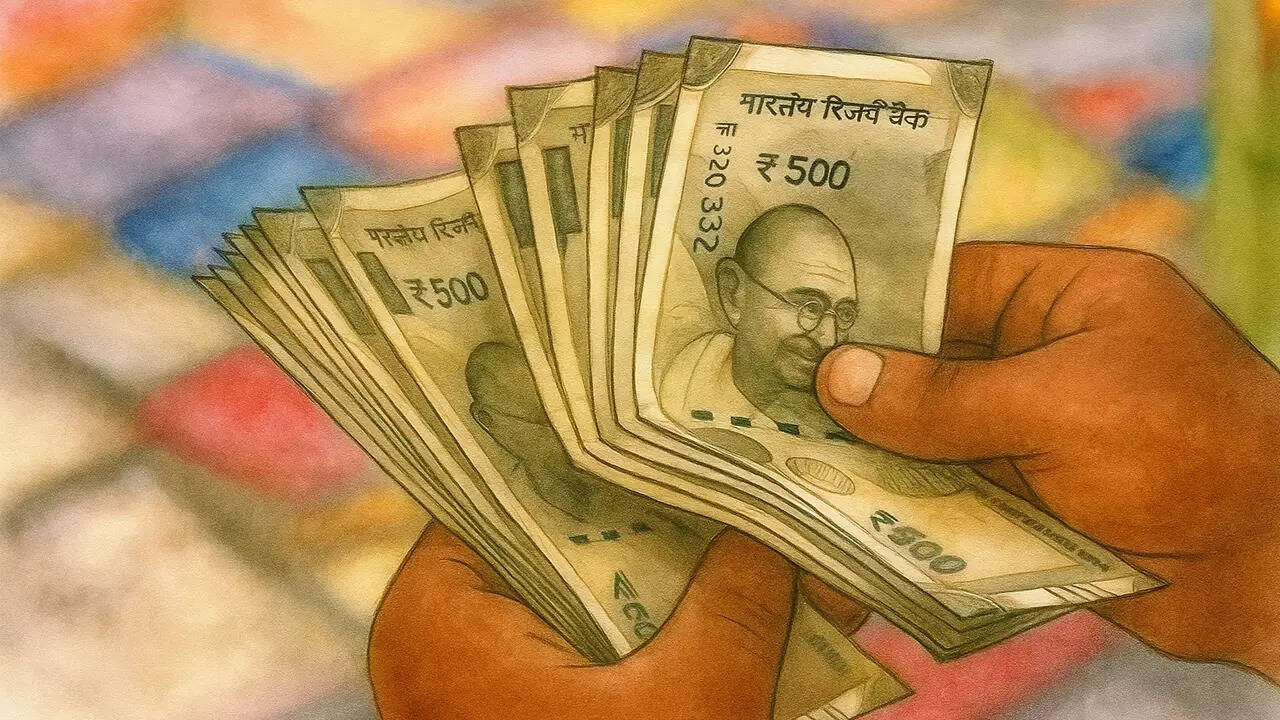The CBDT collected ₹20,000 crore in pending dues in the first quarter, doubling last year’s figures, driven by income-tax demand notices. With a recovery target of ₹1.96 lakh crore for the fiscal year, the department is intensifying efforts to identify income under-reporting and tax evasion.
Unearthing Hidden Riches: How India’s Income Tax Department is Cracking Down on Tax Evasion
Imagine a scenario where hidden wealth, deliberately obscured from the public eye, is brought to light. Not a fictional heist movie, but a real-world operation carried out by India’s Central Board of Direct Taxes (CBDT). The results? A staggering ₹20,000 crore recovered in income tax – almost double what was recouped last year. This isn’t just about numbers; it’s about fairness, economic justice, and ensuring a level playing field for all.
For years, the challenge of tax evasion and underreporting has plagued economies worldwide. India is no exception. The CBDT, the governing body overseeing income tax in India, has been working tirelessly to tighten its grip on those attempting to avoid their financial responsibilities. This year’s recovery figures clearly demonstrate their increasing effectiveness. But how did they manage to achieve such a significant leap?
Unveiling the Strategies Behind Increased Tax Recovery
The specifics of the CBDT’s strategy remain somewhat confidential, naturally. However, hints suggest a multi-pronged approach. Increased data analysis, leveraging technology to identify discrepancies, and proactive investigation appear to be key elements. Think of it as financial detectives piecing together clues to reveal hidden income streams.
One crucial aspect is the use of sophisticated data analytics. The Income Tax Department now possesses the technological capability to cross-reference vast amounts of financial data from various sources – banks, property registries, stock markets – to identify anomalies. If your reported income doesn’t align with your visible lifestyle or financial transactions, chances are, the taxman will notice.
Another powerful tool is focused investigation. Armed with data-driven insights, the department can target individuals and entities suspected of significant tax evasion or underreporting. These investigations often involve meticulous examination of financial records, interviews with relevant parties, and, if necessary, raids on premises to uncover concealed assets.
The Impact of Robust Tax Enforcement
What does this surge in income tax recovery mean for the average Indian citizen? The implications are far-reaching. Firstly, increased tax revenue allows the government to invest more in crucial public services like education, healthcare, and infrastructure. This, in turn, improves the quality of life for everyone.
Secondly, it promotes a culture of tax compliance. When individuals witness that tax evasion doesn’t go unpunished, they are more likely to fulfill their own tax obligations honestly. This fosters a more equitable and sustainable economic environment.
Finally, the recovered funds can be used to reduce the overall tax burden on honest taxpayers. By broadening the tax base and ensuring that everyone contributes their fair share, the government can potentially lower tax rates for compliant citizens.

The Road Ahead: Maintaining Momentum in Combating Tax Evasion
The CBDT’s recent success is undoubtedly commendable. However, the fight against tax evasion is an ongoing battle. As financial systems become more complex and globalized, tax evaders are constantly finding new ways to conceal their wealth.
The Income Tax Department needs to remain vigilant, continuously adapt its strategies, and embrace new technologies to stay ahead of the curve. Strengthening international cooperation is also essential, as tax evasion often involves cross-border transactions.
Furthermore, educating the public about the importance of tax compliance and the consequences of tax evasion is crucial. A well-informed citizenry is more likely to support the government’s efforts to combat tax avoidance and promote a fairer economic system. We have other articles on our site about [financial planning for tax season](internal-link).
A Fairer Future Through Diligent Income Tax Recovery
The recent surge in income tax recovery in India isn’t just a statistical anomaly; it’s a sign of progress. It demonstrates the government’s commitment to cracking down on tax evasion, promoting fairness, and building a more prosperous future for all. While the path ahead may be challenging, the results achieved so far provide a strong foundation for continued success. By staying vigilant, embracing innovation, and fostering a culture of tax compliance, India can create an economic environment where everyone contributes their fair share and benefits from a stronger, more equitable society.







